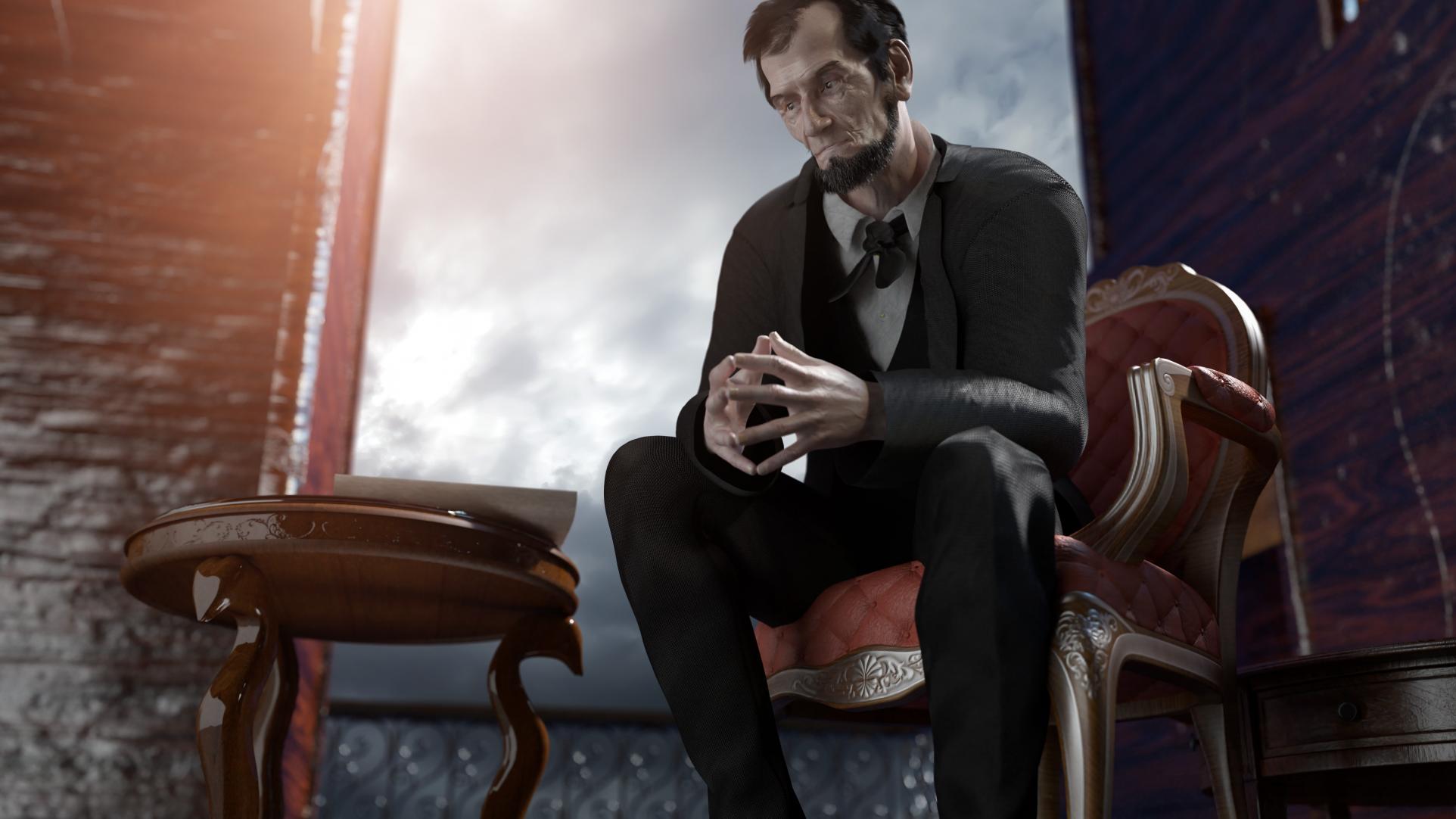Abraham Lincoln should never have made it to adulthood. He was born into a poor frontier family, with genetic tendencies to suicide and depression. Both parents experienced traumatic events as young children themselves, and they never quite fully recovered. Lincoln’s father had witnessed his own father bleed to death from the wounds of an Indian tomahawk, and his mother grew up with the stigma of being born out of wedlock. Not only did his parents live in a log cabin with a dirt floor, but they also struggled to put food on the table.
Lincoln had very few friends as a child, and his melancholy nature was greatly impacted by the death of his brother. This was followed by the death of his mother when he was nine years old. His only relief seemed to be in books, but those were very scarce on the frontier, and virtually nonexistent in the home of poor families. He longed to go to school, but as public schools had yet to be created, he only intermittently attended the frontier schools. He never attained more than an elementary education.
As he continued to grow, his father’s depression continued to deepen as well. He was hired out by his father, but never saw the wages that he earned, for they were given to his father. This and many other interactions made such an impact on him that once he left home, he never talked to his father again.
As a young man, Lincoln again experienced loss with the death of his sister. He fell in love with a local blonde-haired beauty named Anne, but when she unexpectedly fell ill and died, he isolated himself even more from society, penning a suicide letter that, thankfully, he never acted upon. A few years later he met his future wife, Mary Todd, and even as a young couple, they would have fights that would trigger intense bouts of depression. She was prone to violent tempers and tantrums, and it was not uncommon for her to throw objects at him and belittle him in front of others. In later years, she was committed to an insane asylum by her son.
Lincoln tried his hand at different frontier businesses and pursuits but never seemed to be successful. He had been a ferryman on the Ohio River, clerk at a general store, Captain of the 31st Regiment of the Illinois militia during the Black Hawk War, and shopkeeper, surveyor, and postmaster in Illinois. He began to study law and attempted to join politics. However, he was quickly defeated in the election for a seat in the Illinois General Assembly. He was elected a few subsequent times in the Illinois General Assembly and even served one single term representing Illinois in the U.S. House of Representatives. However, he suffered a loss every other time he tried to get reelected. He continued returning to law when his political ambitions would fail.
Then, suddenly, at 52 years old, his name was put forth on the Republican ticket for President of the United States. Everyone was shocked! Only local people knew him, but he was respected for his hard work ethic, powerful speeches, and determination to halt slavery. He made such an impression that he went from not being elected a second time to Congress to being nominated for the presidency! This Republican Party had been a newly formed political party to halt the expansion of slavery. Previous presidents had favored slavery and turned a blind eye to Southern injustices. Immediately upon election in 1860, he began receiving death threats from Southerners. Within a few short months, they began seceding from the Union one by one. Eleven states eventually formed their own pro-slavery government, The Confederate States of America.
Lincoln’s dedication to the preservation of the Union and his political prowess is one of the main reasons why the Union was eventually victorious in the American Civil War of 1861-1865. For the first half of the war, the Confederacy seemed to be winning the majority of the battles. Thousands of former slaves were fleeing Northward, and as Lincoln heard their stories and witnessed their physical scars, he became convinced that this war was not just about preserving the Union. It was no longer a war about state’s rights but about human rights. Slavery had to be abolished, and with that burning conviction, he penned “The Emancipation Proclamation.” At first, this only freed slaves in Confederate states, but it eventually led to the emancipation of all American slaves, four million in total.
He was instrumental in getting Congress to pass the Reconstruction Amendments. There were months of fighting between the political parties. The Republicans, who had founded their party on the premise of halting the expansion of slavery, wanted to do more for former slaves, while the Democrats vigorously opposed these laws that would grant constitutional freedoms to African Americans. With a Republican president and Speaker-of-the-House in Congress, the Republicans were able to prevail, passing the 13th, 14th, and 15th amendments. The first of these Reconstruction Amendments banned slavery, the second gave equal citizenship to former slaves, and the third prohibited states from taking away voting rights based on skin color.
Without the leadership of Abraham Lincoln, we most likely wouldn’t have a unified North and South. It is very possible that our nation would continue to be separated today if it was not for his political and military strategizing. Besides John Adams and John Quincy Adams, he was the only president in the first 16 terms who felt that slavery was a moral and political evil. This firm conviction in the face of ridicule and death made an impact on others, as they became convinced that slavery did not just need to be halted but needed to be done away with.
Sadly, in 1865, just shortly after the end of the Civil War, Lincoln was assassinated by a disgruntled Southerner. Millions of Americans across the nation mourned his death. He had progressed from being the most hated and ridiculed president to being the most popular president in American history. Even today in modern polls, Americans rank Lincoln even higher than Washington.
Lincoln should have never made it to adulthood, yet his life was clearly protected by the hand of God. He was just the man that America needed at just the right time, and he was faithful to the cause that he was raised for.
After studying the life of Lincoln, we most likely walk away humbled that such a great man could rise up from such unlikely circumstances. He may seem like a “larger than life” character, but he was a man who struggled with many the same issues that we do today – depression, self-esteem, and a multitude of trials that were out of his control. What was his secret? He pressed on and did his duty. In the final months of the Civil War, he spent entire nights in prayer and began each day with reading from the Bible.
Call to Action
His secret to strength amidst the odds can become our secret. Gaining strength from Bible study and prayer, we can join countless other Christians in pressing on until Jesus returns: “Not that I have already obtained this or am already perfect, but I press on to make it my own, because Christ Jesus has made me his own. Brothers, I do not consider that I have made it my own. But one thing I do: forgetting what lies behind and straining forward to what lies ahead, I press on toward the goal for the prize of the upward call of God in Christ Jesus. Let those of us who are mature think this way.” (Philippians 3:12-15 ESV).
Below are more recent articles — select the picture below to access them:
Information about Time to Get Ready Ministries
The world is in turmoil. People are looking for answers. Jesus wants to come, but people have not been ready. We are an online magazine that publishes weekday articles to encourage, enlighten and empower people to get ready, so Jesus can come.
For further information:
Michael Medved, The American Miracle: Divine Providence in the Rise of the Republic. New York: Crown Forum, 2016.
Stephen E. Oates, With Malice Toward None: A Biography of Abraham Lincoln. New York: HarperCollins Publishers, 1977, 1994.




